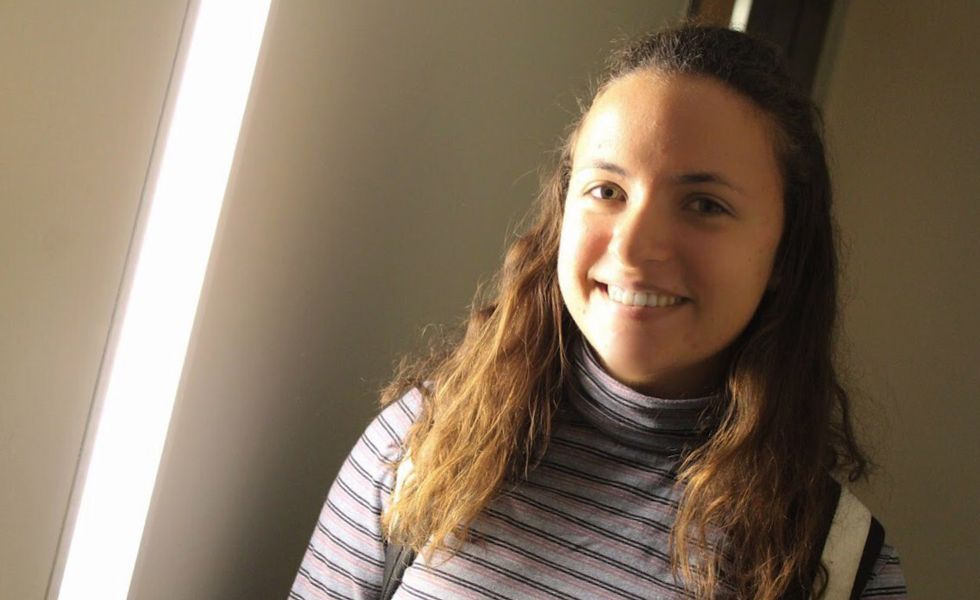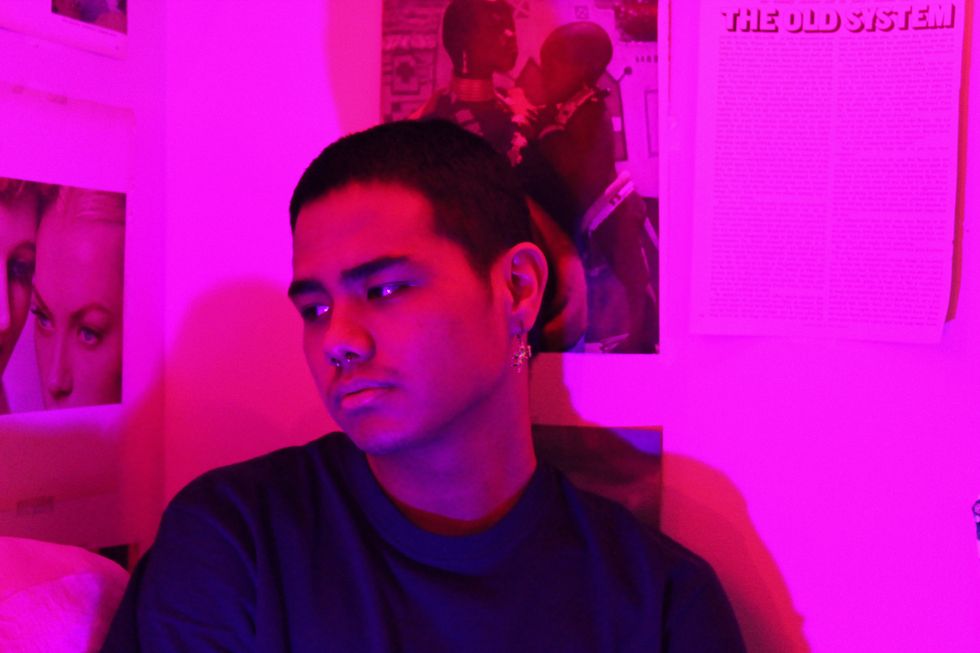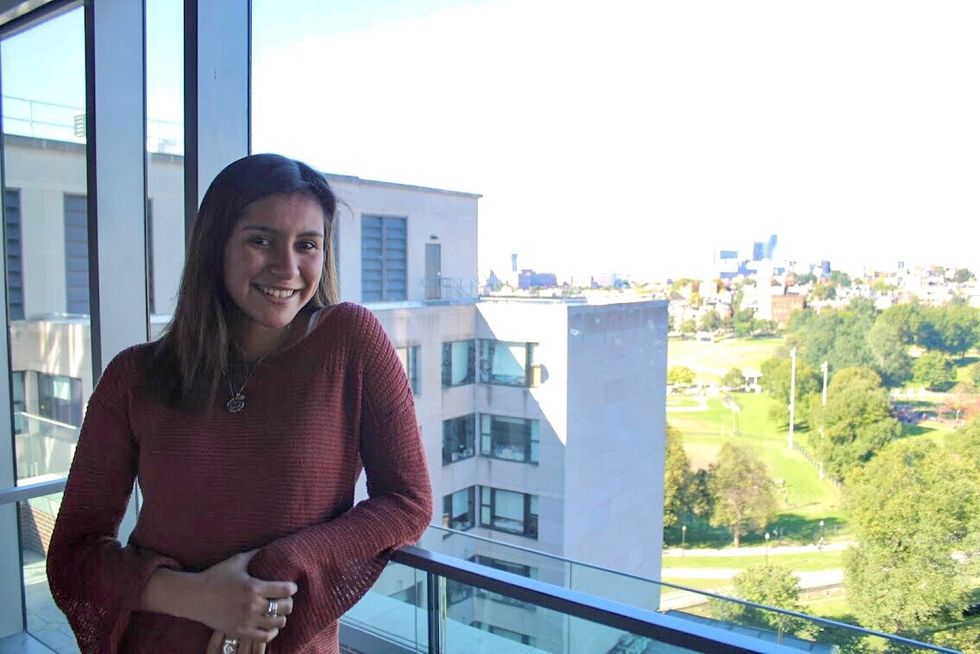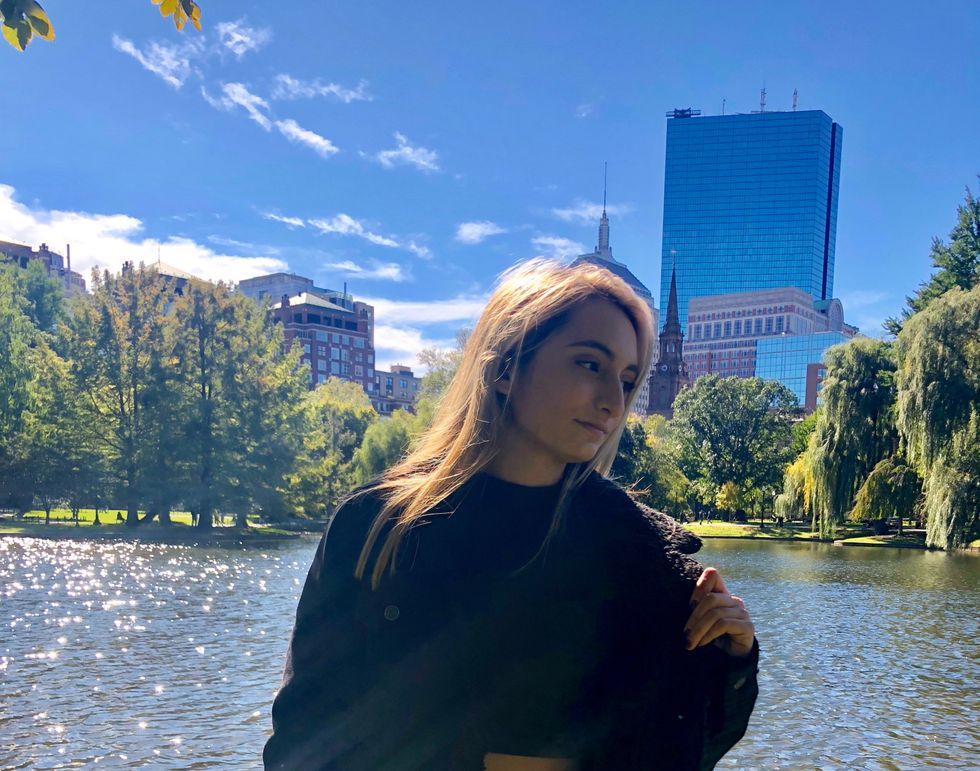When President Trump referred to the press as "the enemy of the people," a journalistic firestorm was ignited across the country. Journalists have been shot dead in newsrooms. They have been imprisoned abroad. Forced into exile. All in the pursuit of the truth, in sifting through a convoluted web of narratives to find what is real.
Journalism is an ever-changing field. With the internet, many new outlets have risen in popularity, both to public adoration and hatred. Their truths are now presented in ways that are catered towards their unique demographics--sometimes, whether they are true or not comes into question. Photojournalism has added an entirely new layer to print and online journalism as well, as it is an entirely different platform for storytelling. This is especially evident through human interest journalism popularized by Brandon Stanton's Humans of New York, as it shows deeply personal individual perspectives on societal issues.
Despite the danger and complexity of this profession, I have still chosen it as my college major and eventual career. It is the pursuit of truth, the raw honesty, and the discovery of new stories that has always intrigued me.
This week, I sat down with my fellow journalism majors at Emerson College and asked them to tell me their stories--the stories of why they chose to become storytellers, like myself.
Jack-of-all trades.

Madison Goldberg
"My very first story wasn't the biggest story I ever wrote. It wasn't the best either. I covered a sports game. What excited me was that it was a night game and that people would read my article in the morning. Students and parents could read about the game, and it was the first time that I realized the journalists' interaction with the public. I loved being able to contribute. On a larger scale, freedom of the press is part of the first amendment, and democracy isn't powerful without the public being informed by journalists. Free press is the backbone of democracy, and we cannot do without it. History will stand with journalists, and not Trump's tweets. I am fueled in part by all the bad things people say about journalists. There is a new age for journalists--as journalism students, we know we have to change our own field because of the public's reaction to us. It is up to us to get our good reputation back. My favorite subject to cover is breaking news. It gives you such an adrenaline rush that lasts longer than while you're covering it. People are watching your every move on such a tight deadline--it allows you to really put your skills to the test and determine what's newsworthy. The most important aspect of telling these stories is being truthful and presenting facts. It can be really easy to go in with preconceived opinions and paint a picture of how you see it, and its important to remember that it's not your job to persuade someone. What complicates these stories further now is the types of mediums that journalists have to work with. They have to know how to use social media professionally. They have to know more than just how to write. These are things that journalists did not need to do 20 years ago."
Freshman Anissa Gardizy is investigating all the fields of journalism as career paths--including photo, print, and broadcast journalism. She describes the modern journalist as a jack-of-all-trades, as they must have a variety of skills that they are prepared to unpack at any given moment to tell stories.
Evolving.

Madison Goldberg
"When I was a little kid, my grandma used to buy me J-14 magazines all the time. She would read them to me because I was so obsessed with fashion. I used to mess around with style all the time as a kid. I read a story about Miley Cyrus, and I just loved her style and how she matched different patterns. It was this story that made me want to go into fashion writing in the future. I have always wanted to go into writing. Two years ago, my sister committed suicide. Once she passed away, I didn't have that person to talk to about everything anymore. I didn't have a sister to give me advice and share experiences with. Once she passed away, I started reading magazines like Cosmopolitan, which kind of filled that void of advice and role models that I was missing. This is what drew me to magazine and pop culture journalism. It made me realize that if these magazines could connect with people on such a personal level, it would be an honor for me to do the same for someone else who is looking for advice about fashion or relationships and is missing a loved one or individual to turn to. As a whole, I feel like it's important for the press to stay strong because we are the eyes of the people. We are the lenses of the cameras that go capture everything every single day. Journalism keeps people informed, and helps people cast their own judgements and make decisions. Trump may be the president, but journalists are the leaders of the people. And the most important aspect of storytelling is relatability--if you're writing something just to write something, that's not real journalism. You have to be able to start a conversation with someone. If it's not conversational then what are you doing? It's so easy nowadays to be conversational through online platforms, which Emerson promotes, because the education here evolves with the times."
Freshman Ronald Kahihikolo aims to be a voice for and with the people through his work. While he primarily focuses on pop culture, entertainment, and relationships in a magazine context, he hopes to try broadcast journalism in his time at Emerson as well. He feels these mediums allow the journalist to interact on a personal level with the public, and that some people need these connections. Kahihikolo describes the modern journalist as evolving, as we are constantly gaining access to new mediums of storytelling and new information.
Complex.

Madison Goldberg
"The one that I wrote that got me into journalism made me realize the true impact of storytelling. It made me realize how important the news is. It just brings things to light. I was a sophomore in high school, and suddenly I became so much more aware of my world. What really stuck out to me was the coverage of the 2016 election. People thought they were being lied to by the media, whether they were or not. This proved how powerful journalism is--the biases are so easily believed. It became more of an analysis than just the facts. I want to enter this field because I hope to gain a better understanding the world and get to know people a little bit better. Everyone has a story and everyone has an opinion. I'm a very neutral person. There needs to be a balance in the world--journalists can keep this balance. You need people to understand all sides of the story. It doesn't matter your location--a story somewhere can have an impact anywhere elsewhere. It's an important thing to be a part of. I do think that as journalists, we need to be reminded to do our job correctly. As long as we keep putting out unbiased material, we have nothing to hide. This is just an era, and as a field we can only keep evolving. I've always said I don't want to cover politics, because it is so broad and intense. Now that I'm here, I have discovered that politics is what makes me feel really alive. What is going on in our society is impacting everyone--and the stories I write about this are so exciting. My stories feel so complete when I write about politics--they are the truths that the world needs to see. I'm grateful to become a journalist at this point in time, because I think we're much more aware due to technology. We can search things, find numbers and addresses for events. We have so much access at our fingertips. We have more opportunities to be involved as students."
Karina Sanchez, a freshman at Emerson College, finds her voice in political print journalism, where she feels she can provide unbiased information for the people to form their own opinions about. On another note, her second passion is magazine print. She loves the layouts, and how it combines art and writing, allowing the writing to truly come alive. She describes the modern journalist as complex because they have to have a variety of skills in compliance with a new age web of ethics codes tied to technology.
Determined

Madison Goldberg
"The first story I ever heard that had an impact on me was about Michael Jackson and his journey in the music industry from what I remember. It was personally really interesting and had me instantly captivated by how the story was told. I loved the interview segments of it and how the music was connected. I think I'll always remember watching that. My motive for entering the journalism field is being able to share stories with people about what they truly want to know. I want people to hear the things other journalists are afraid to ask or wouldn't think of because I know that information is also very important. I want there to be a connection between fans and artists within music journalism that is different than ever before. My favorite subject manner to cover is music because I am a musician myself and it's a focus I have always had interest in. I am intrigued about fans and their connection to their favorite artists. It's something I don't think I'll ever lose interest in. The most important aspect of telling a story is emotion. Facts are facts. Those are things that you can look up, but they are not things you can feel. It's important to sense a person's emotions and personality through interviews or long form pieces. There should be a voice that is clear to the reader or viewer. Journalism, for me, is about the message and its connection to those invested.This is why my favorite type of journalism is definitely interviewing. It gives me the opportunity to ask the questions I have had the time to plan out and shape a piece with a specific angle. It also seems like the most personal form of journalism in my opinion. I think journalism students are ahead of journalism students 20 years ago for a variety of reasons. One is that we have such an improvement in technology. Because of phones, we are able to look things up on the spot, record audio/video and always have a camera on us. That's the biggest advantage in my opinion."
Alessandra Guarneri, a sophomore, has a passion for creating her own music and unpacking why artists create their music. She describes the modern journalist as determined, as the press is under so much scrutiny at this point in time, and journalists have learned to deal with anything thrown their way.














